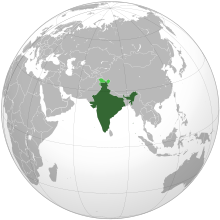Getting India Back On Track
Medical Pharmaceutical Translations • Apr 22, 2013 12:00:00 AM

Once a hot destination for speedy clinical trials and a global leader in medical research and development, India is seeing its number of approved clinical trials plummet this year. In 2011, 325 Global Clinical Trials (GCTs) were approved (a drop from 500 in 2010) followed by another drop to 262 trials in 2012. According to The Hindu, thru the end of March 2013, only 12 approvals have been granted by the DCGI (Drug Controller General India). 1
Following 2,262 death in clinical trials over the past five years and media outcry against the Health Ministry for allowing Indians to be used as “guinea pigs,” stringent norms for clinical trials are in force this year. According to DCGI GN Singh, “The safety and well being of Indian subjects participating in clinical trials is the foremost in our minds.” 1
The new norms mandate a minimum fixed formula for compensation in case of a trial participant’s death or serious injury due to adverse events (the prior average award was a paltry Rs 2.2 lakh 1 according to the Health Ministry).
In the past, trial sponsors used their own investigators to monitor serious adverse event inquiries. As of this year, trials are monitored by an independent Ethics Review Committee (EC), registered with the DCGI and evaluated by a Biomedical Research Authority. Clearance by the EC is mandatory for clinical trial approval.
At a March conference on “Ethics in Clinical Research and Research Methodology” at Sri Ramachandra University in Chennai, India, the Governor of Tamil Nadu declared, “Unethical conduct of clinical trials, plagiarized research publications and sub-standard research projects are damaging our image.” and that “Education and training on international guidelines and standards of clinical trials is needed to maintain the culture of ethics in the field of clinical research.” 2
He also congratulated Sri Ramachandra University for signing a memo of understanding with Miami University establishing a Collaborative International Training Initiative offering training modules to young researchers.
In a guest column on the website Global Health Progress.org3 , Jay Taylor, VP of International Affairs for PhRMA claims India’s clinical trial environment has been sensationalized by the media. It highlighted 438 Indian patients died in clinical trials in 2011 without mentioning the death rate for trial participants is half the rate for India’s general population.
According to India’s Minister of Health, 16 deaths were suspected of being the result of a serious adverse event (out of 150,000 total trial participants.) Mr. Taylor rightly notes this is 16 deaths too many from an adverse event, “However, it is equally important that these serious issues be publicly examined with a proper regard to the facts and circumstances.” 3
We would also note the majority of people participating in India’s clinical trials pre-exist with acute, chronic diseases and lifestyle disorders and receive better care and monitoring through a clinical trial than their non-participatory counterparts.
Not just a global leader in drug development and research, but in pharmaceutical manufacturing as well, this year India needs to rebuild trust with its end-users across the globe by establishing a transparent, stringent environment adhering to international standards for clinical trials. Educating researchers on international standards (in particular, informed consent) while assessing India’s system of clinical trials fairly and accurately will keep India’s pharmaceutical industry on the right track.
1 “Post Stringent Norms, Clinical Trials in India Plummet”, The Hindu, April 21, 2013
2 “Education & Training in Global Guidelines of Clinical Trials Needed to Maintain Ethics: Dr. Rosaiah”, Pharmabiz.com, March 06,2013
3 “India & Clinical Trials: PhRMA Weighs In”, GlobalHealthProgress.org, January 14, 2013
Sherry Dineen
